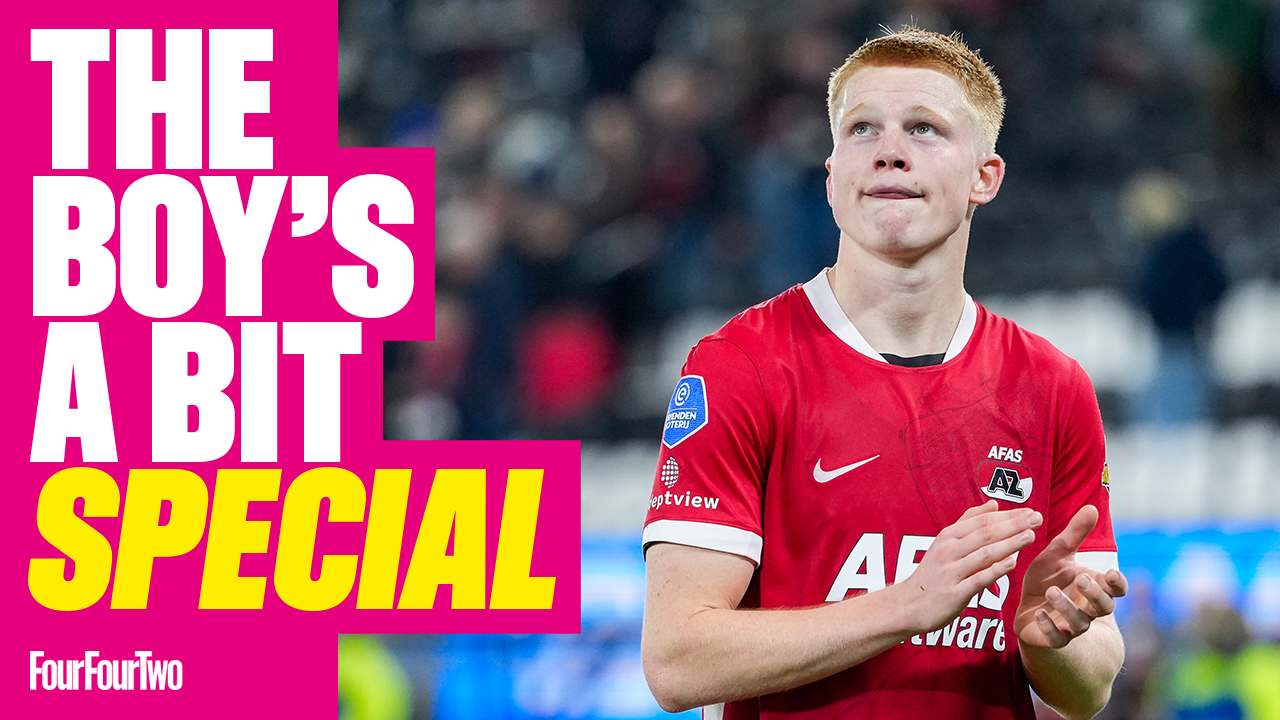How Beckenbauer became the brains, guts and vision of Bayern Munich
Did Der Kaiser invent total football? Some say so...
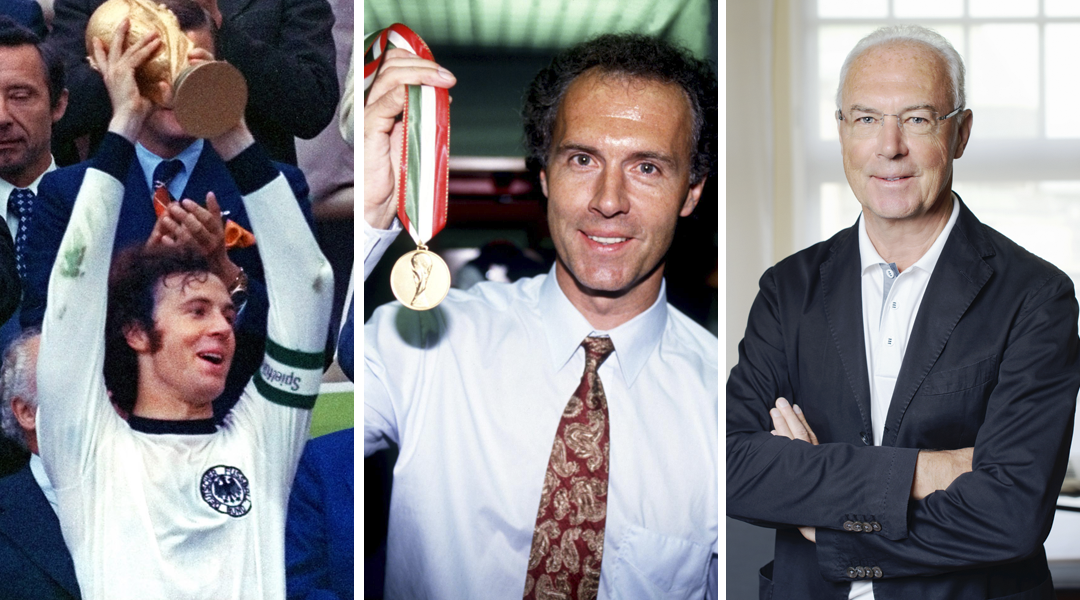
It’s Thursday 22 May, 2008, in the small hours of the morning, in the VIP area at Moscow’s Luzhniki stadium, shortly after Manchester United have won the UEFA Champions League on penalties. I'm standing with the latest copy of Champions magazine in my hand, trying to pluck up the courage to ask Franz Beckenbauer, who is deep in conversation at a nearby table, to autograph the cover.
After a few minutes, there is a lull and, seizing the moment, I apologise for the interruption and ask for Beckenbauer’s signature. “Of course,” he nods, graciously taking the proffered pen and magazine. While he’s signing, I ask him what he thought of the match. He pauses, then pinches the air with his right hand to convey the slender margin of United’s victory.
At the time, the gesture just seemed a marvellously concise piece of punditry. Later, I realised that Beckenbauer had spent much of his career living in those margins.
A linesman’s flag had helped dash his hopes of winning the World Cup at Wembley in 1966. Four years later, even though he remained on the pitch with his dislocated arm in a sling, West Germany still lost the greatest World Cup semi-final of all-time, by the odd goal in seven, to Italy.
It could never happen today but the famous shot of him with his arm strapped across his chest – he had fractured his clavicle – is iconic proof that with Beckenbauer there was guts behind the elegance.
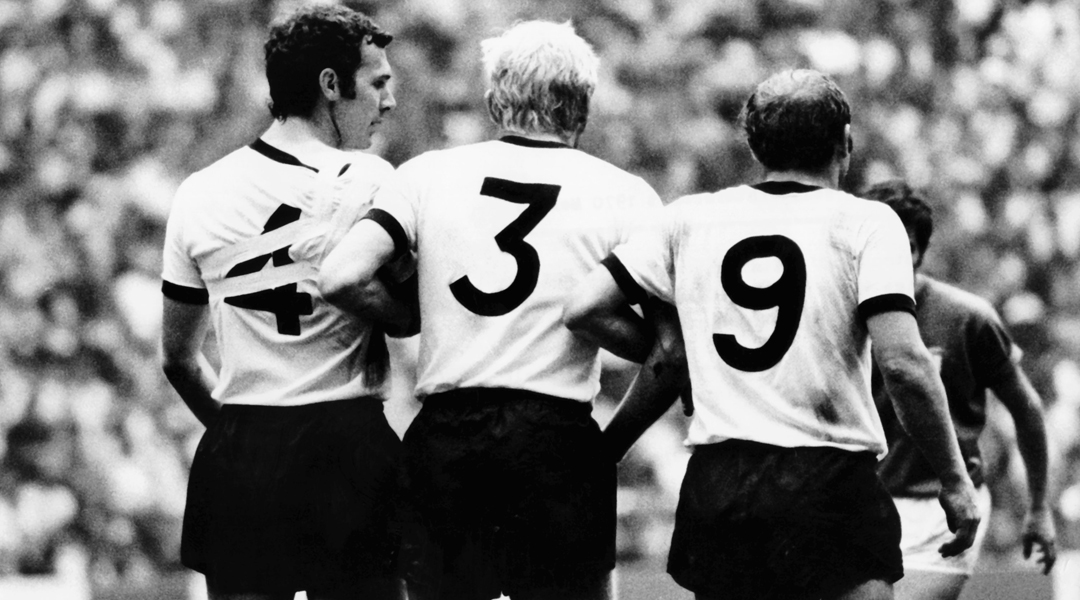
Even in 1974, the year in which he won the European Cup and World Cup, Beckenbauer’s successes were hardly routine. Against Atletico Madrid, Bayern were a minute from defeat before Georg Schwarzenbeck equalised – setting up a replay that the Roten won 4-0.
In the World Cup final, Beckenbauer’s side were barely in the game for 20 minutes as Johan Neeskens’ penalty gave the brilliant Oranje the lead. A little more clinical focus from the Dutch could have sealed the result before Paul Breitner equalised from the spot in the 25th minute. Even as a manager, his 1990 World Cup triumph owed a lot to England’s ineptitude from the spot in Turin.
The vicissitudes of fate have unbalanced or embittered many footballers, yet in the face of Kipling’s twin impostors of triumph and disaster, Beckenbauer’s elegant equanimity remains remarkable. Even Brian Clough was moved to say of him: “I once saw Franz Beckenbauer enter a restaurant and he did it the same way he played football: with class and authority.”
Player, coach, both at once.
One way of looking at football history is as a continuous, unresolvable struggle for authority and influence between players and coaches. Since the 1930s, coaches have invariably had the upper hand but Beckenbauer is one of a handful of footballers to have truly changed the way the game is played.
Although he never really relished life in the dugout – agreeing to coach West Germany, Marseille and Bayern partly because he felt compelled to help institutions he cared about – he very quickly proved himself an astute coach on the pitch.
In 1967, Bayern won their first European trophy, the Cup Winners’ Cup. The Roten were definitely progressing – when the Bundesliga was formed in 1963, they had been too unimportant to be invited to join – but Beckenbauer could see that a step change was needed. Under their visionary coach Zlatko Cajkovski, Bayern were a little too cavalier. If they were to win the Bundesliga – and have a shot at the European Cup – they needed to become more efficient.
The best features, fun and footballing quizzes, straight to your inbox every week.
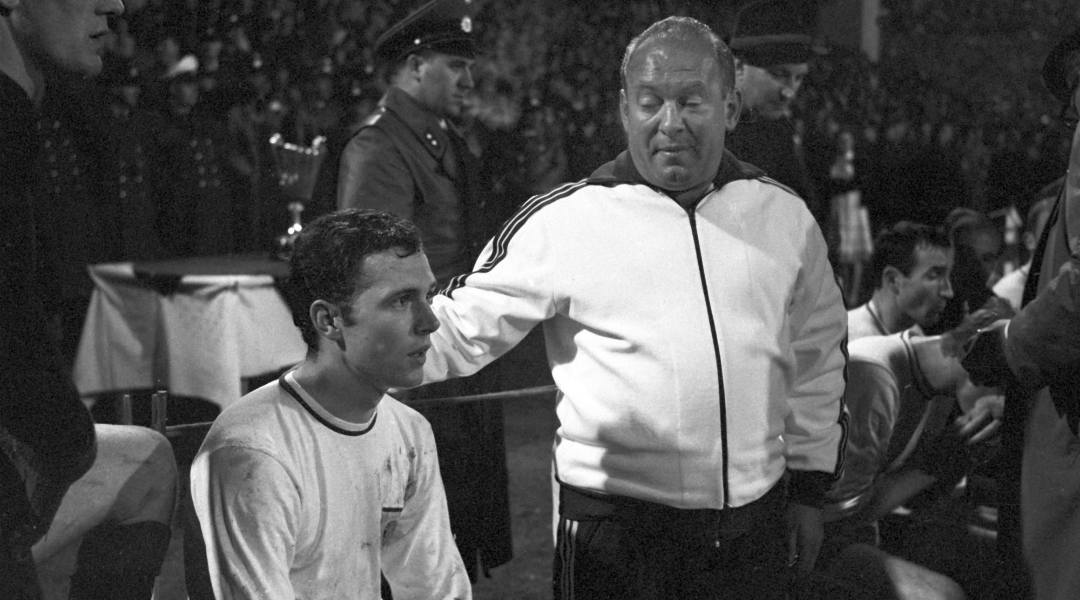
That was not going to happen under the Yugoslav, who left the club a year later. Between 1974 and 1976, Bayern became the third team to win three successive European Cups. Although the Roten’s treble was achieved under the management of Dettmar Cramer and Udo Lattek, you could make a case that Beckenbauer, directing play as the sweeper, was the true architect of that golden era.
So influential was Beckenbauer as a libero, that German football remained tactically in thrall to his legend long after he hung up his boots in 1983. Even in 1996, when Germany became European champions, their most influential player was sweeper Matthias Sammer. Not until Rudi Voller took over, after a disastrous Euro 2000, did the Mannschaft finally commit tactical heresy – in German terms – and abandon the sweeper.
As a young player, Beckenbauer was a discerning aficionado of Giacinto Facchetti, arguably the greatest attacking full-back in the world in the 1960s. As Brian Glanville noted in his Guardian obituary for the Italian idol, “Watching Facchetti’s spectacular incursions from left-back, his thundering right-footed shots, Beckenbauer asked himself why he, as a libero and a sweeper, should not attack from a more central role. He did, and total football was born at Bayern Munich.”
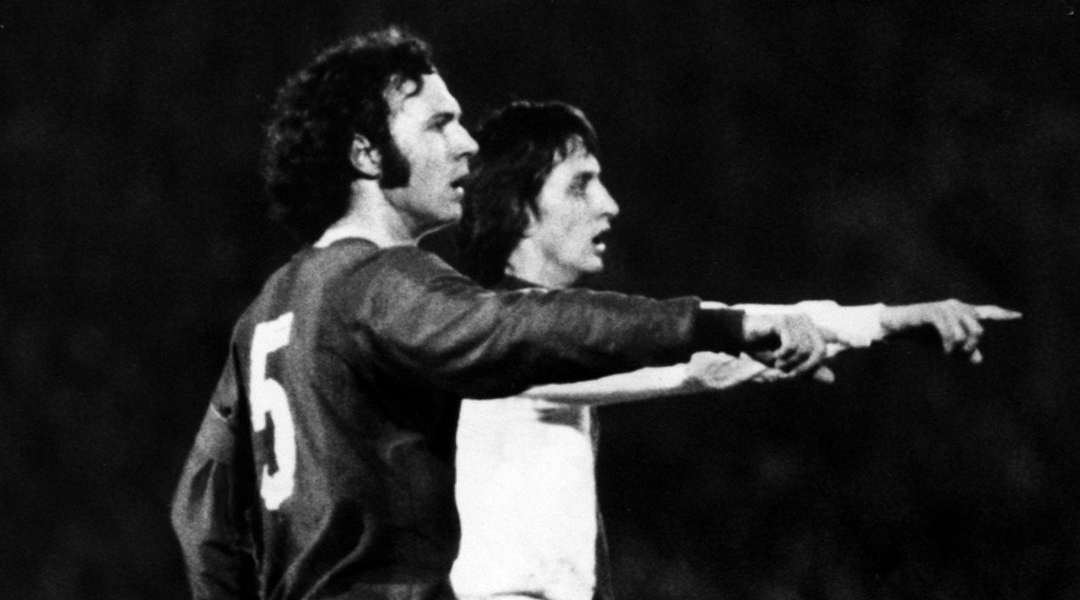
Glanville’s last point is contentious. Beckenbauer has never made such grandiose claims on his own behalf. Yet, as someone who had thought a lot about the game, he had his own intriguing take on total football, once saying: “It owed more to the element of surprise than any magic formula. The Dutch got away with it for so long because the opposition could never work out what tactics they were facing. There were no tactics at all, just brilliant players with the ball.”
In other words, in the recurring argument over the respective influence of coaches and players in the development of the game, Beckenbauer is convinced that, despite what the football hipster school of history might suggest, total football owed a lot more to Johan Cruyff than Rinus Michels.
Osvaldo Ardiles said Germany’s greatest living footballer was a leader who played exquisite football. Beckenbauer’s glory days are a heady reminder of an age when coaches were not all dictatorial micromanagers and players could be leaders too.
Not that his style convinced everybody. In two stints at New York Cosmos, his play was too cerebral for one of the executives who complained to a minion: “Tell the Kraut to get his ass up front – we don’t pay a million for a guy to hang around in defence.”
This article was originally published on FourFourTwo.com in January 2014.
 Join The Club
Join The Club





